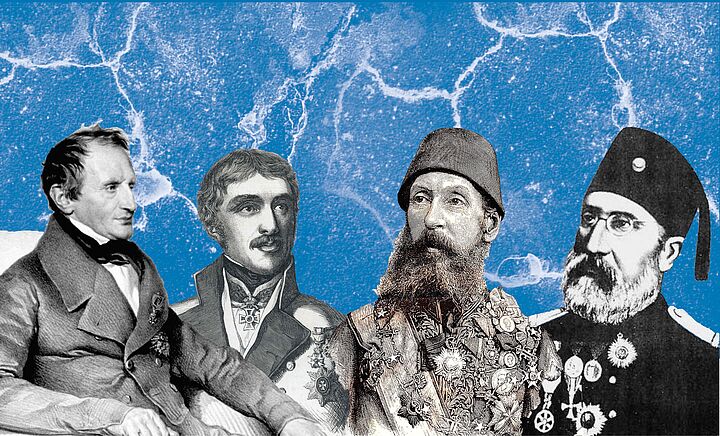Mittwoch, 14. Oktober 2020, 18:30 - 20:00 iCal
Ringvorlesung Turkologie WiSe 2020/21
„...ein Feind Josef von Hammers“ – Habsburgisch-osmanische Beziehungsgeschichten
14.10.2020 - 20.01.2021 | Mittwochs 18.30 - 20.00 Uhr
Institut für Orientalistik
Online Event
Semih Çelik (Istanbul)
Scientists, Bureaucrats and Plants: A Connected History of the Natural History Museum of Galatasaray – 1835-1875
At the time when the concept of "museum” had entered the Ottoman vocabulary and institutional framework of the empire, efforts were first put on the establishment of a natural history museum in the premises of the newly founded Medical College of Galatasaray at the end of the 1830s. Having remained out of sight of Ottoman historians for long, the museum recently received growing interest from historians and natural scientists alike. The collections of the museum, the Ottoman and non-Ottoman scientists who gathered the material, and the institutional framework of this first natural history museum of the empire have been studied rather sporadically and within the context of the Ottoman Empire.
This lecture aims to relocate the Natural History Museum of Galatasaray within a rather global context through a connected history approach. Based on recently unearthed archival sources from the archives of Naturhistorisches Museum Wien, University of Padova archives, and Presidential Ottoman Archives in Istanbul, it discusses the connections between scientists, bureaucrats, objects and institutions to contribute to a global history of science in the nineteenth century. The lecture primarily focuses on the experiences of three Austrian scientists in the foundation, extension and aftermath of the Natural History Museum in Istanbul: Friedrich Wilhelm Noe, Karl Eduard Hammerschmidt (aka. Macarlı Abdullah Bey) and Theodor Kotschy.
Bio
Semih Çelik is a postdoctoral researcher at the Department of History and a part-time lecturer at the CORE program at Koç University, Istanbul. He has completed his PhD dissertation in 2017 at the European University Institute in Florence, Italy, on climate change, famines and empire building in Anatolia in the first half of the nineteenth century. His research falls under the field of environmental history of the Ottoman Empire from the seventeenth century to early twentieth century. In 2019, he was awarded the Andreas Tietze Memorial Fellowship by Vienna University to work in the archives of Naturhistorisches Museum Wien. He has recently been awarded with funding by The Scientific and Technological Research Council of Turkey (TUBITAK) for a three-year project on agricultural and environmental history of north-western Anatolia in the mid-nineteenth century.
Zur Webseite der Veranstaltung
Veranstalter
Kontakt
Ayse Dilsiz Hartmuth
Institut für Orientalistik
43-1-4277-43451
ayse.dilsiz@univie.ac.at
Erstellt am Mittwoch, 07. Oktober 2020, 12:58
Letzte Änderung am Mittwoch, 14. Oktober 2020, 08:28

